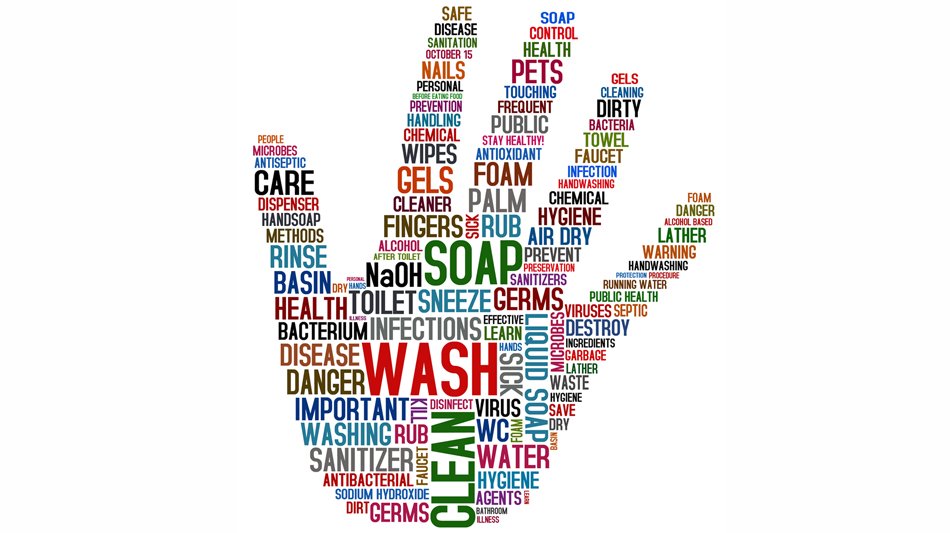The flu affects us all. Workdays are lost. Families get sick. Kids stay home from school. Sports teams lose players. Clubs miss events. The answer is to stop the flu before it impacts your work or family and friends – and vice-versa. Rather like security for a computer system, stopping the flu needs a human system built on interlocking layers of defense against the flu virus. Everyone must play their part.
The layers of defence will focus on yourself, on the groups you interact with (family and work), and on other groups in your community. Pay special attention to those at higher risk: with immune system deficiencies, recently sick, or the elderly, for example. Remember: the flu can kill. Keeping your immune system strong with healthy food choices, staying hydrated, getting proper sleep, and being physically active all help.
The flu virus can be just as sneaky as a computer virus. You can be infected by someone a full day before they show any signs or symptoms. At work or home, infection lies in wait for you on surfaces like door handles, keyboards, phones, toys, or utensils for up to 48 hours. Just think how many different door handles and surfaces are touched or sneezed over in your building every day!
The first layer of defense against the flu is the flu shot. It’s like a “Get-Out-of-Jail-Free” card in Monopoly, offering you near-immunity and allowing you to get on with life as usual. Better still, you can’t spread the flu to anyone else and that protects the community as a whole – the people in your organisation and your family and friends too. A flu clinic at your office allows the convenience of protection without the hassle of public clinics. Convenience breeds compliance.
“Herd immunity” occurs when a significant part of a group gets vaccinated. Provided enough people in any group get vaccinated, those that can’t or won’t also get a degree of protection. They too become less susceptible to infection. The greater the number in the group who are resistant, the lower the probability a susceptible person will come into contact with the infection. A rule of thumb is 80% of a large mixed population needs to be vaccinated. But herd immunity is unlikely to work as consistently where groups with different immunization levels mingle. Examples include washrooms in multi-occupant buildings, shopping malls, or clinics. This means that frequent cleaning of surfaces and washing or sanitising of your hands remains critical. If you don’t do this, the flu can quickly spread as you handle things that others also touch. At work, how many hands do you shake each day? How often do you touch a copier or coffee pot? Why are medical staff expected to wash their hands thoroughly between patients?
Hand washing or sanitising doesn’t mean a quick rinse and shake. Effective hand washing involves a 20-second commitment, which may add up to 5 to 10 minutes a day. This is a small investment compared to a week or ten days of miserable flu symptoms: headaches, chills, cough, fever, muscle aches, fatigue, sneezing, watery eyes, nausea, vomiting and diarrhea – and more. If the flu catches up with, you’ll wish you (and your friends and co-workers) had taken those few extra seconds at the sink or to use the hand sanitizer. Many people wash only the palms of their hands and miss the backs, between the fingers, and the wrist. Being thorough is a must, because security against germs is only as strong as the weakest link. Everyone, even those who have had their flu shots, has the potential to transfer germs. To benefit the group, as many as possible must act – and the group culture must encourage this.
Key times to wash your hands are: when you arrive at work or home; after you touch something that is not yours; after you cough, sneeze or blow your nose; after you use the washroom; and before you eat. Use hand sanitizers when a trip to the washroom is not practicable. Put hand sanitizers where many people are likely be touching something – like entrance doors. Arrange for door handles and the like to be sanitised once a day. Avoid touching any part of your face with your hands.
Good habits are the starting point. Sneezing, for example, is the ballistic secret weapon of the flu virus because sneezing can expel billions of germs at 100 miles per hour for a distance of 6 feet. Airborne germs can easily enter through the respiratory system of those around you. Ideally, always sneeze into your arm to protect yourself and others. Sneezing into your hands allows too many germs to escape into the air, onto nearby surfaces, or to linger on your hands to be transferred to what you touch.
Last but not least, if you do catch the flu, protect others by staying away from them as much as you can. Do what you can to protect the herd. If the option is available, take work home with you. Think ahead. Keep a reserve of food and medications in the house during flu season so you won’t have to go out to the store.
As with a great computer security system, you all need to work hard and be aware so that not even one virus can invade your system. Same goes for the system we all need to keep the flu away from those with whom we live and work.
Get with the system. Play your part. Protect the herd. Stay healthy!
Bob Webb





